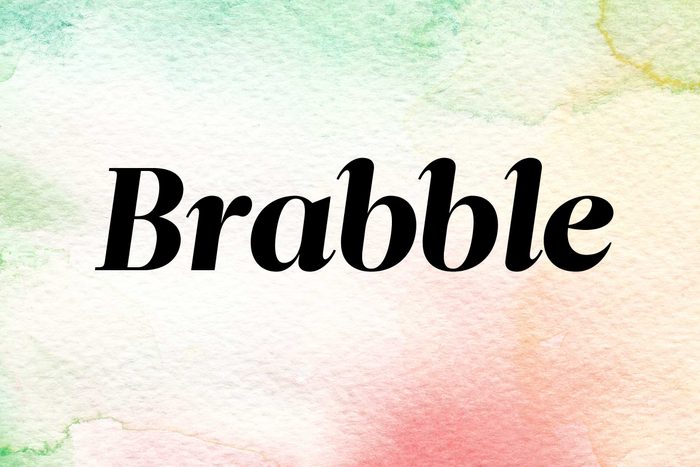Zounds! These obsolete yet colorful words have fallen out of use, but you’ll sound super smart mixing them into your next party conversation.

10 Amazing Words We No Longer Use (But Should!)


Brabble
Whether you’re discussing politics or wrangling small children, the word brabble could still find plenty of use in today’s society. Meaning “to argue stubbornly about trifles” or, in noun form, “noisy, quarrelsome chatter,” the word originated from the Middle Dutch brabbelen and eventually morphed into the more-recognized jabber. The next time your children are arguing, tell them, “If you kids don’t stop your brabbling, you won’t get ice cream after dinner.”

Crapulous
It sounds like a term your teenager might make up when he isn’t feeling well, but the word crapulous actually has a long and respectful history, originating in the 1500s. Not surprisingly, it does relate to feeling unwell, but in this case, it describes feeling not well after indulging in too much eating or drinking: “I ate all that cake at the party last night, and now I’m feeling completely crapulous.”

Buss
No, that’s not a typo for a form of public transportation. Rather, back in the 16th century, the word buss referred to a kiss—especially a loud or exuberant one. Derived from the Middle English term bassen, which means “to kiss,” the word’s first known use is somewhere around 1570.

Snoutfair
Sure, the word snoutfair, which dates back to the 1500s, sounds like something you’d overhear at a state fair’s pig contest. However, it actually refers to a person’s appearance, in particular the appearance of someone you find charming and handsome, if a little devilish: “That boy who sits next to me in algebra is a total snoutfair! I hope he asks me to the prom.”

Quockerwodger
In the 1850s, the funny-sounding term quockerwodger referred simply to a wooden puppet controlled by strings, a la Pinocchio. As time went on, it began to take on a political meaning, as in a politician whose actions are controlled by someone else: “The governor used to be a stand-up guy, but now he’s just a quockerwodger for corporate interests.”

Zafty
The 19th-century word zafty has found new life in modern times as a brand name for a tabletop game company. Back in the day, however, it was an insult given to a person who is easily imposed upon—or, in more basic language, someone who is a doormat or pushover: “I wish he would stop being such a zafty and stand up for himself!”

Rum peeper
It may sound like the name of a drink you’d order at a bar, but rum peeper has absolutely nothing to do with alcohol. Rather, upper-class women in the late 1600s polished their coifs in front of “rum peepers,” which was the name given to an exquisite, silver-looking glass, or, as we call them today: mirrors.

Contumelious
This tongue twister of a word, pronounced “con-TOOM-yoo-lee-us,” is a Middle English word derived from French. It was often used in literature to refer to someone who is insolent, or arrogantly rude and disrespectful: In the 1847 novel Jane Eyre, for example, Miss Ingram pushes the young Adele away with “contumelious epithet.”

Obambulate
No, the classical Latin word obambulate doesn’t describe the tardy habits of former president Barack Obama; rather, it refers to wandering about with no direction or purpose: “I need to think, so I’m going to head to the park and obambulate for a while.”

Hugger-mugger
It sounds like a term from the Harry Potter series, but the first known use of hugger-mugger appeared in the 1520s, according to Merriam-Webster, and was used in two completely different ways: first, as a synonym for “a secret act,” and second, to mean “disorder” or “confusion.” It is spoken by Claudius in Shakespeare’s Hamlet, which was written around 1600: “For good Polonius’ death, and we have done but greenly in hugger-mugger to inter him.”
Why trust us
At Reader’s Digest, we’re committed to producing high-quality content by writers with expertise and experience in their field in consultation with relevant, qualified experts. We rely on reputable primary sources, including government and professional organizations and academic institutions as well as our writers’ personal experiences where appropriate. We verify all facts and data, back them with credible sourcing and revisit them over time to ensure they remain accurate and up to date. Read more about our team, our contributors and our editorial policies.
Sources:
- Oxford English Dictionary
- From Old Books: “Rum-peepers”



















